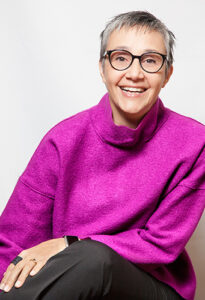TURNING TOUGH CHOICES INTO SCHOLAR-LED TRANSFORMATION-Reflection
February 7, 2024
Dr. Najat Aoun Saliba’s talk on her research and activism gave me insight into the challenges and techniques of change.
Saliba began her talk by summarizing her academic research on air pollution in Beirut and the dangers of smoking different types of nicotine. She explained the methodology behind the projects and why she and her team at the American University of Beirut received international recognition for their findings.
Dr. Najat Aoun Saliba ran for parliament to change smoking, inhalant safety, and air pollution policy. She wanted to apply her research findings to Lebanese society. However, corruption and stagnation within the parliament have hampered her attempts.
Saliba created a system of local solutions instead to combat environmental decline and address humanitarian needs. She considers herself an activist and scholar whose work is based on social justice. One such example of scholarly activism is the international response by scholars to the outbreak of COVID-19 and the search for a cure.
Dr. Saliba described what she considers to be three pillars or steps to sustainable social change. The first is community and contextual research that can be applied to bring about change and given recognition by widespread communities. The second is community-driven solutions. For the solutions to be sustainable, they must work well within communities. The third pillar, which, according to Saliba, has yet to be achieved, is an international change that would bring about social and environmental change in a way that creates accountability. Saliba described that the source of many of the social and ecological problems she has faced is greed and corruption by political officials in Lebanon. Corruption permeates the governing system, making any change that would be costly and difficult to bring about.
Her organization, called the Environment Academy, seeks to bring about sustainable change, such as stopping illegal tree cutting or overgrazing of forests. Her methods include empowering local government authorities to participate and co-create change with the organization.

Dr. Najat Saliba https://www.aub.edu.lb/articles/Pages/Najat-Saliba-For-Women-in-Science.aspx
According to Saliba, success is dependent on the analysis of the problem in the context of individual towns and communities. To bring about such change, the organization must connect scholars, lawyers, government authorities, and the communities. With such strong support in different areas, fighting against corruption can be more synchronized. Patience and small steps towards big change are considered to be pillars of change as well.
The talk “Turning Tough Choices into Scholar-Led Transformation” made me think about how this method of scholar and community led transformation can be applied to Carlisle. First students and educators should identify issues within the area that we think can be addressed through policy and community engagement. It seems to me, that the most important factor for change, atleast for Saliba is cooperation and participation from people from different disciplines and domains.
February 9th, 2024 at 5:45 pm
Some of this work is already underway locally, such as the work Dickinson students, staff, and faculty did to help Carlisle develop a climate action plan. A current, ongoing initiative addresses climate resilience in Cumberland County. I am one of quite a few Dickinson community members who have joined local residents and officials in this initiative. More here: https://www.dickinson.edu/climateresilience